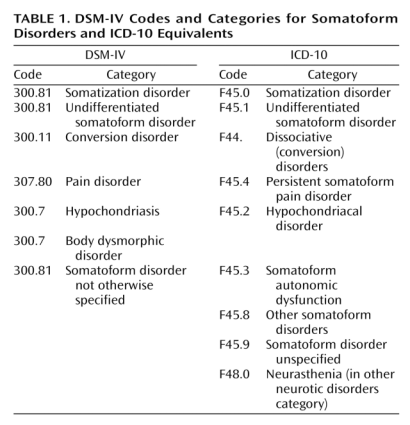I agree fresh eyes (still unsure about "freshie"

),
This information in this thread is complicated enough without diversions about unrelated topics.. Criticisms of the CAA are going to pop up on any given thread, but any ensuing debates should be moved to a CAA-dedicated thread (of which there are now at least three) unless they actually
are relevant to the original thread's purpose.
Maybe one of the mods could move posts unrelated to this thread into another? Or maybe Cort could start a thread for answering criticisms of the CAA?


That said, I think Cort's first post here raised questions about ME vs. CFS that
are relevant here, since this thread is concerned with international classification and definitions of this disease (which are of great significance). So, I'll answer some of Cort's points in this post..
First of all, Cort, I haven't yet cyber-thanked you for creating and maintaining this fantastic forum...So thank you!

(and, by the way, I subscribed to your blog before I even knew about this place!) Sorry we have to cyber-meet in a bit of an argument, but you must be used to that by now...

"Lets not forget there are no treatments for it either - so that information does nothing good for doctors."
I assume you meant "no cures" for ME, because of
course there are treatments for ME -- the same ones there are for (the mostly synonymous) CFS... that's why you have a 'treatments' section on this forum. Just no established cure or clearly understood cause. But that goes for a lot of well-accepted diseases, as Lisette and others have pointed out. Doctor ignorance about ME in this country is thanks in large part to the CDC. If you replace an accepted name for a disease with another, and then expand its definition to include more diseases, and then say the original disease's definition is "something else", then of course no one will end up knowing jack about it. And research using the new disease definition will become useless.
"Cheney et al refused to call this disease myalgic encephalomyelitis in their first paper because it wasn't all epidemic and it didn't fit all the parameters. If you didn't come down with your disorder in a epidemic fashion - with people all around you getting sick - then you don't fit the ME criteria. Thats what the CDC is saying and its true! All the published accounts of ME are epidemic in nature."
All the published accounts of ME
epidemics are epidemic in nature. But the reason ME is called ME in the UK and elswhere, regardless of whether it is epidemic or not, is because the definition DOES NOT include epidemic nature as a criterion. What disease definition does? It would be horribly unscientific and an even worse public health mistake to think that any disease can only occur in epidemics. Many transmissable diseases that can occur epidemically also occur
endemically (geographically and temporally scattered, unrelated cases). Some fungal and bacterial infections, for example, can be passed rapidly through a population but also occur in single or scattered cases, often due to vulnerable biologies in those individuals, or to isolated exposures to the pathogen.
What the CDC is saying is NOT true. They have been obscuring the history of ME research for two decades. It is no surprise, then, that the current US version of the ICD is the only one in the world that does not clearly recognize either ME or postviral fatigue syndrome. (Though so far the plan is that they
will catch up with the rest of the world in
that respect at least in the upcoming version).
You don't typically have an initial paralysis that resolves itself or strongly twitching muscle groups etc. either - which as I remember happened fairly frequently in those outbreaks.
I'm afraid you may need to re-read about ME outbreaks.. and definitions and case histories. 'Initial paralysis' is by no means a frequent symptom in the general ME epidemic literature. In some of the cases in some of the epidemics what was reported was loosely defined as paralysis that affected patients when they tried to initiate movement after a period of remaining still (especially after sleep). Twitching muscles is a well-documented symptom in CFS literature, as well. And even if there had been more frequent cases of more severe neurological symptoms, it would not be surprising; pathogens in epidemics are often more aggressive in their attack, particularly of the nervous system, than they are in endemic form.
As for Cheney avoiding the term ME, that is a more complicated (and controversial) issue that will take us outside the range of this thread...but what should matter now is that he was part of the Name Change Advisory Board (the other members: Drs. Peterson, Bateman, Bell, Lapp, Klimas, Komaroff, and Jason) that in 2007 agreed and publicly proposed that ME should be used for the term CFS, that the acronym ME should have two meanings: "myalgic encephalomyelitis" and the more diagnostically accurate "myalgic encephalopathy", and that (for now) CFS should be known as ME/CFS primarily in the United States. They agreed to hang on to the CFS label in ME/CFS only because "dropping CFS completely from a new name could cause problems with disability and medical insurance claims", and "to preserve continuity in research, which currently refers to CFS almost entirely."
http://www.prohealth.com/library/print.cfm?libid=12597
http://www.afairname.org/profile.cfm?ID=7774
http://www.ei-resource.org/news/chr...igue-syndrome-name-change-plan-moves-forward/
You can find a good little article about the preference for the term "myalgic encephalopathy" by Charles Shepherd here:
http://azlezoo.com/index.php?option=com_content&task=view&id=223
You can find debates about the naming issue all over the place, but the bottom line is that CFS is the worst of the bunch, and now comes complete with the vaguest definition, allowing psychologization of a clearly organic disease.
Alright, enough pseudo-diversion...sorry for the length folks

...back to the heart of the thread...

